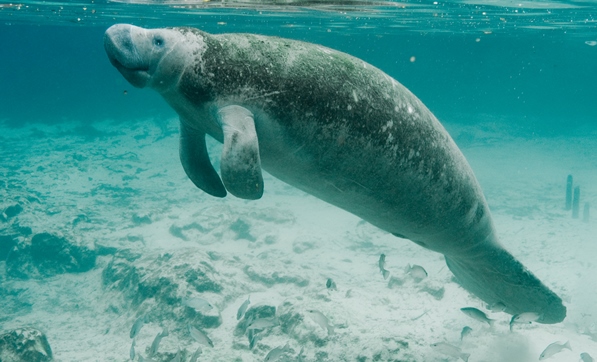Mammals possess a certain gene, termed PON1, which encodes a protein enzyme (paraoxonase) that is used to process the cholesterol lipids and fatty acids found in food. This gene evolved millions of years ago and is functionally active in terrestrial (land) mammals, including humans. However, this gene is nonfunctional (as the result of various inactivating mutations) in many marine mammals, having become "lost" during the evolutionary transition that these creatures underwent from land to sea. Thus, most present-day sea mammals, including manatees, dugongs, seals, sea lions, dolphins, and whales, do not possess the paraoxonase enzyme and have adapted other mechanisms to deal with the fatty acids and lipids in their diets. See also: Adaptation (biology); Animal evolution; Cetacea; Enzyme; Gene; Genetics; Mammalia; Mutation; Pinnipeds; Sirenia

In modern times, though, the paraoxonase enzyme has a secondary usefulness that is quite unique—specifically, it breaks down organophosphates, which are toxic chemicals found in pesticides and fertilizers. Therefore, land mammals, which have a functional PON1 gene and can produce paraoxonase, possess a strong defense mechanism against the organophosphate environmental pollutants. In contrast, marine mammals, with their lost PON1 gene, are no longer capable of neutralizing these chemical toxins. Thus, these toxins, which reach the ocean predominantly by agricultural runoff and illegal dumping, can build up in the bodies of marine mammals, making them vulnerable to nervous system deficits, including brain damage, paralysis, and birth defects, which often lead to death. See also: Agricultural chemistry; Environmental toxicology; Fertilizer; Marine ecology; Pesticide; Toxicology
Conservationists have been concerned for decades about the effects of environmental toxins on marine mammals. Many of these sea creatures are endangered species, and the loss of the PON1 gene makes them more susceptible to exposure to organophosphates. In addition, further studies conducted on semiaquatic mammals, including sea otters and beavers, show a loss of functionality of the PON1 gene, making them just as vulnerable to organophosphate toxins as marine mammals. Hence, the only current definitive solution to protect all of these mammals is the reduction and elimination of the use of harmful organophosphate chemicals, especially in areas where endangered wildlife live. See also: Beaver; Ecosystem; Endangered species; Marine conservation; Otter





